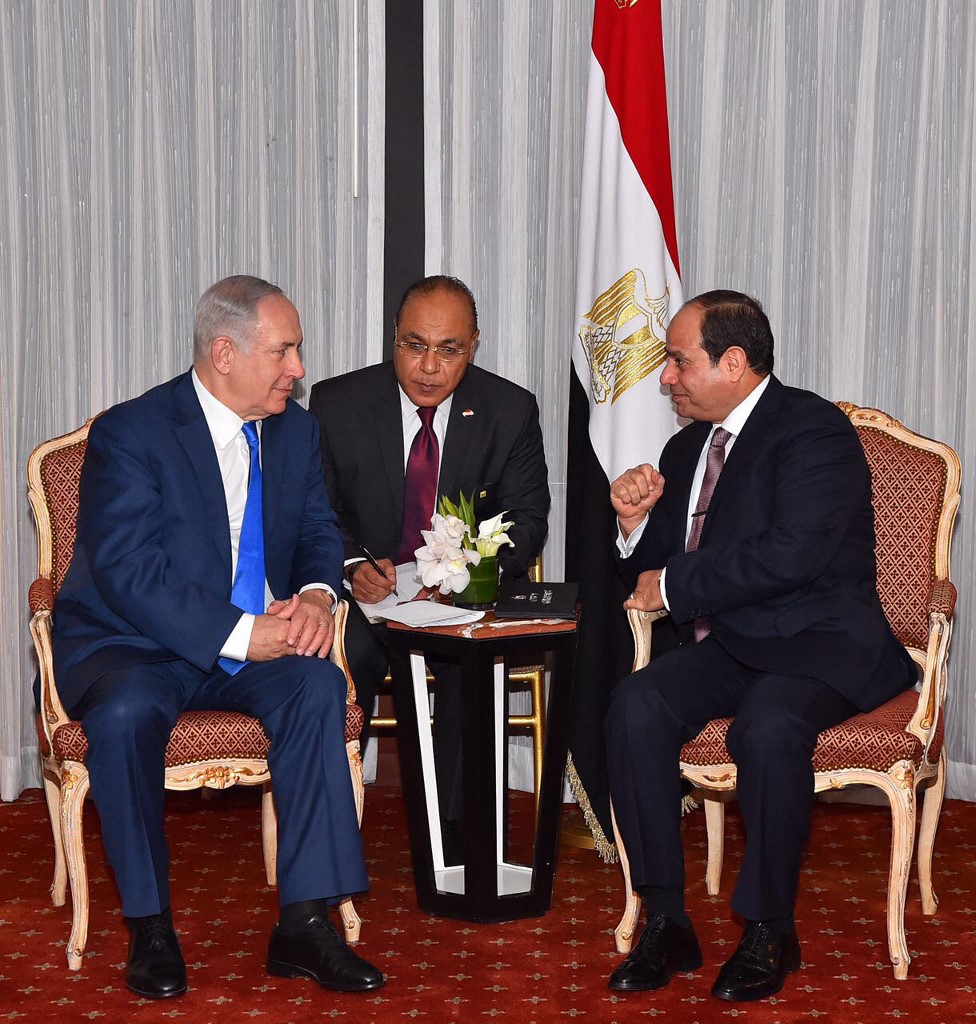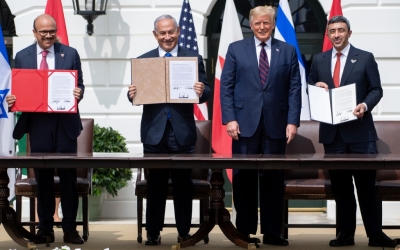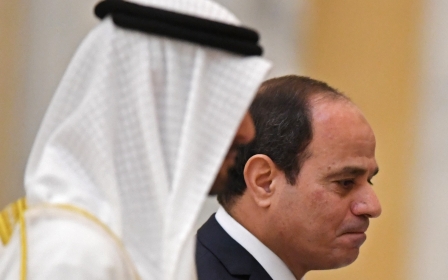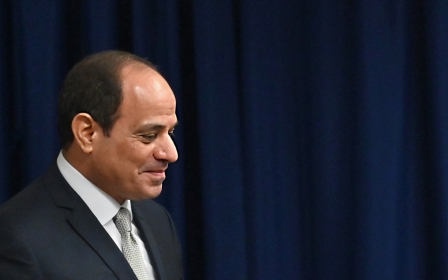Israel-Gaza ceasefire: Sisi has figured out how to get Biden's attention
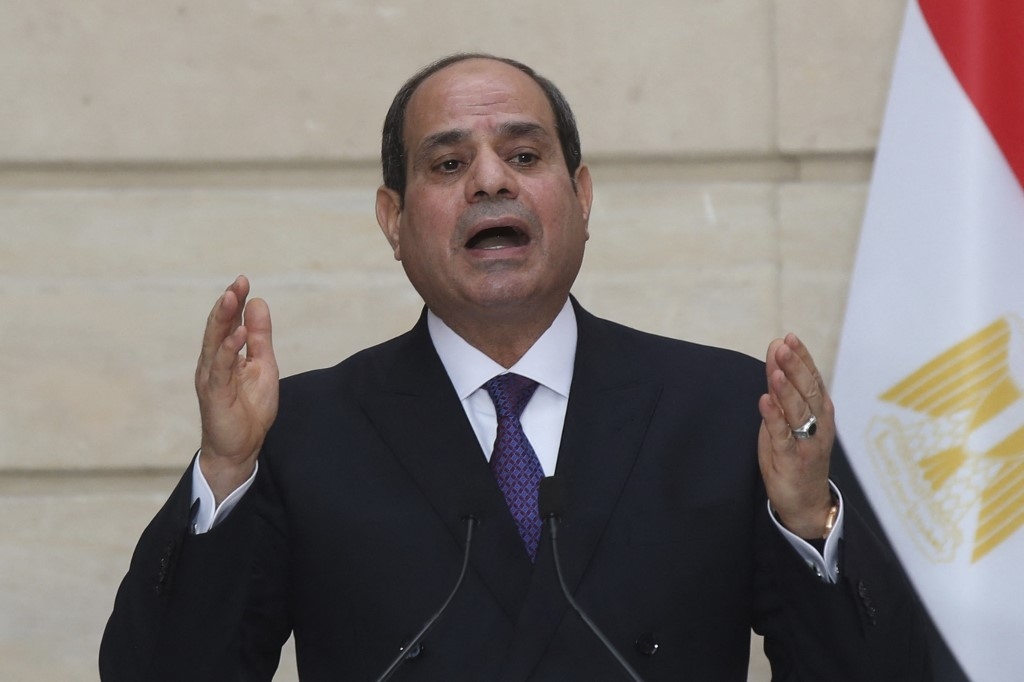
As the Gaza ceasefire deal took effect last week, US President Joe Biden, in a short speech, thanked Egyptian President Abdel Fattah al-Sisi, “who played a critical role in this diplomacy”. Any close observer of Egyptian affairs will have noted a U-turn in Cairo’s discourse on Palestine, Gaza and Hamas leading up to the ceasefire. But why?
A couple of weeks earlier, Egypt’s foreign affairs ministry condemned the Israeli military’s storming of al-Aqsa Mosque on the holiest night of Ramadan. The Friday sermon at al-Azhar Mosque strongly criticised Israel, citing the need for an “Islamic deterrence force” to free Jerusalem from occupation.
Now, by taking the lead in response to Israeli aggression, Egypt is leaving no room for popular anti-regime mobilisation
Egypt’s television talk show presenters and the regime’s crony parliamentarians expressed solidarity with Palestine, while condemning Israel as a belligerent, occupying enemy. There was no such criticism of Hamas.
At the same time, anonymous Egyptian sources spread the news that the Rafah border crossing between Egypt and Gaza had opened for humanitarian aid. Trucks with Sisi’s image on them were seen heading for Gaza. Sisi later promised to allocate $500m for Gaza’s reconstruction.
And yet, under Sisi, Egypt has traditionally viewed Hamas as a terrorist organisation, routinely accusing it of carrying out attacks in the Sinai and smuggling weapons to the Muslim Brotherhood. While such accusations have been ill-founded, Egypt has viewed Hamas as an extension of the Brotherhood, and thus a threat to the stability of the Egyptian regime.
New MEE newsletter: Jerusalem Dispatch
Sign up to get the latest insights and analysis on Israel-Palestine, alongside Turkey Unpacked and other MEE newsletters
Engaging with Israel
In 2014, unlike previous presidents, Sisi neither intervened to stop Israel’s assault on Gaza, nor pushed diplomatically for a ceasefire, leaving Gaza to suffer weeks of air strikes before arranging a ceasefire. During periods of escalation in the following years, Egypt’s involvement in ceasefire agreements was marginal.
Sisi also supported the US “deal of the century”, which Palestinians roundly rejected, and did not express any harsh condemnation of former US President Donald Trump’s recognition of Jerusalem as Israel’s capital - in contrast to the scathing rebuttals of Jordan, Turkey, Qatar and other Muslim-majority countries.
Egypt has been looking to reposition itself in the Israeli-Palestinian conflict and to regain regional influence. But this repositioning needed to be justified, to make sense internally, and to absorb public anger over Israel’s aggression in Jerusalem.
Egypt’s regional influence has shrunk over the years. Part of its influence came through its 1979 peace treaty with Israel, which was a cornerstone of the regional order, as Egypt spearheaded the Arab “normalisation” process. Egypt was in a prime position to mediate between Israel and Hamas during times of escalation, even as it remained regionally taboo to engage openly with Israel.
With the arrival of the Arab Spring, however, Egypt’s relations with Israel deteriorated. The Israeli embassy in Cairo was stormed amid massive protests in 2011. In the short year of the Morsi regime, Egypt supported Gaza in an unprecedented manner, sending its prime minister to the besieged territory when Israel attacked it in late 2012. Still, the Morsi government played a critical role in brokering a subsequent ceasefire agreement. Egypt’s regional influence was on the rise.
Cracking down on dissent
Under Sisi, however, Egypt significantly shifted gears, improving its relations with Israel and secretively allowing Israeli air strikes on armed groups in the Sinai. Egypt also gave up two islands, Tiran and Sanafir, to Saudi Arabia - a domestically controversial move that was widely viewed as a favour to Israel. What did Egypt get in exchange? Not much, beyond the continued support of the Israel lobby in the US pushing Washington to stomach Egypt’s repressive regime.
In the Mubarak era, Egypt still had a margin of freedom not permitted by the current regime. Pro-Palestine protests broke out during periods of Israeli aggression. But the Sisi regime has cracked down on all forms of dissent; publicly raising the Palestinian flag can result in detention or forcible disappearance.
Now, by taking the lead in response to Israeli aggression, Egypt is leaving no room for popular anti-regime mobilisation. With its reduced regional influence, it wants to prove that it remains relevant, recently issuing a warning to Ethiopia against trying to extend control over the Nile in the Grand Ethiopian Renaissance Dam (GERD) dispute.
When Biden came to power on a promise to reaffirm the US commitment to democracy and human rights, he initially avoided Sisi. However, Biden could no longer ignore him and their first phone call took place last week, just ahead of the Gaza ceasefire. Days later, in another call, Biden acknowledged Egypt’s concerns over the GERD and cited the need for a “diplomatic resolution”. While this wasn’t big news in the US, it made headlines in Egypt, and could be exactly why Egypt repositioned itself in the latest Israel-Palestine escalation.
Whether the US will really help Egypt with its water security issues remains to be seen - but Egypt now knows what to do to get Biden’s attention. Still, with Egypt now under the Biden administration’s radar, its dismal record on human rights is more likely to come up in future talks.
While Egypt’s state-controlled media barely mentioned it, in his second call, Biden did "underscore" "the importance of a constructive dialogue on human rights in Egypt". However, without serious pressure from Washington, any progress on human rights issues in Egypt seems very unlikely.
The views expressed in this article belong to the author and do not necessarily reflect the editorial policy of Middle East Eye.
Middle East Eye delivers independent and unrivalled coverage and analysis of the Middle East, North Africa and beyond. To learn more about republishing this content and the associated fees, please fill out this form. More about MEE can be found here.



